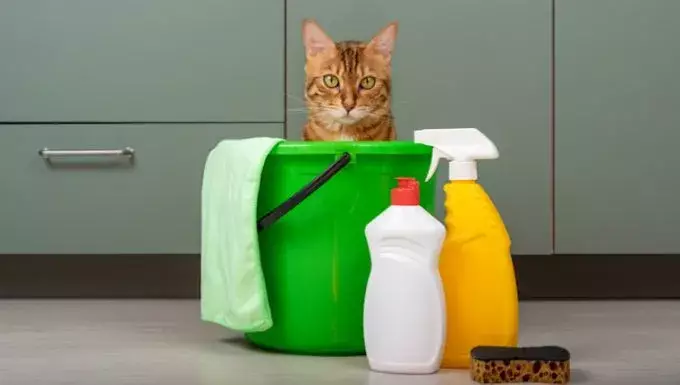Ethanol poisoning is a critical health concern for our feline companions, often stemming from common household products. As caretakers, it’s vital to understand what ethanol poisoning entails, the potential sources of exposure, its symptoms, and the effective treatments available. This knowledge can empower pet owners to act promptly in emergency situations, ensuring the best outcomes for their furry friends.
Ethanol poisoning, scientifically referred to as ethanol toxicosis, occurs when a cat ingests or absorbs ethanol through its skin. Ethanol, or ethyl alcohol, is primarily known for its presence in alcoholic beverages. However, it is also found in many products that we may not typically associate with toxicity, including certain medications, disinfectants, and even some foods. This widespread availability makes it crucial for pet owners to be vigilant about their cats’ environments to mitigate the risk of accidental poisonings.
To effectively prevent ethanol poisoning, it’s important to be aware of the various products that contain ethanol. For instance, **household items** like paints, varnishes, cleaning supplies, and hand sanitizers often harbor this toxic substance. **Food products** can also be culprits; for example, fermented foods such as bread dough, overripe fruits, or spoiled apples can contain dangerous levels of ethanol. Even common beverages intended for human consumption can pose a high risk if consumed by curious cats. Being mindful of where these items are stored and ensuring they are out of a cat’s reach can significantly reduce the chances of poisoning.
Understanding and identifying the symptoms of ethanol poisoning is crucial for timely intervention. The effects of ethanol can manifest relatively quickly, often within 15 to 30 minutes after exposure. Symptoms to watch for include:
– Vomiting
– Depression or lethargy
– Dehydration
– Ataxia (lack of coordination)
– Frequent urination or defecation
These symptoms may hint at serious nervous system impairment due to ethanol’s toxic effects. If a cat exhibits any of these behaviors, immediate veterinary attention is required to ensure proper treatment.
When you take your cat to the veterinarian, they will start by evaluating the symptoms your cat is displaying. It’s crucial to provide them with detailed information about any known or potential exposure to ethanol. Following this, a thorough physical examination will be conducted, alongside blood and urine tests. Blood tests are particularly instrumental, as they can reveal the concentration of ethanol in the bloodstream, confirming the diagnosis.
Depending on the severity of the poisoning—determined by the amount of exposure and the symptoms being exhibited—the vet will tailor a treatment plan. This typically involves intravenous fluids to combat dehydration and restore balance, as well as medications to alleviate neurological symptoms. Adhering to your veterinarian’s guidance on dosage and duration of treatment is essential for a full recovery.
As the adage goes, “prevention is better than cure.” The best way to protect your feline friend from ethanol poisoning is to limit their exposure to potentially harmful substances. Be proactive about securing cleaning products, medications, and food items that could be toxic. Creating a safe environment for your cat not only reduces the risk of poisoning but also fosters a healthier and happier living space for your pet.
Understanding the dangers of ethanol poisoning in cats is an invaluable aspect of responsible pet ownership. By being aware of sources, recognizing symptoms, ensuring proper veterinary care, and prioritizing prevention, you can safeguard your cat against this serious health hazard. Should you find yourself in a situation where your cat has been exposed, do not hesitate to seek immediate veterinary assistance—early intervention can make all the difference in ensuring a positive outcome for your beloved companion.


Leave a Reply